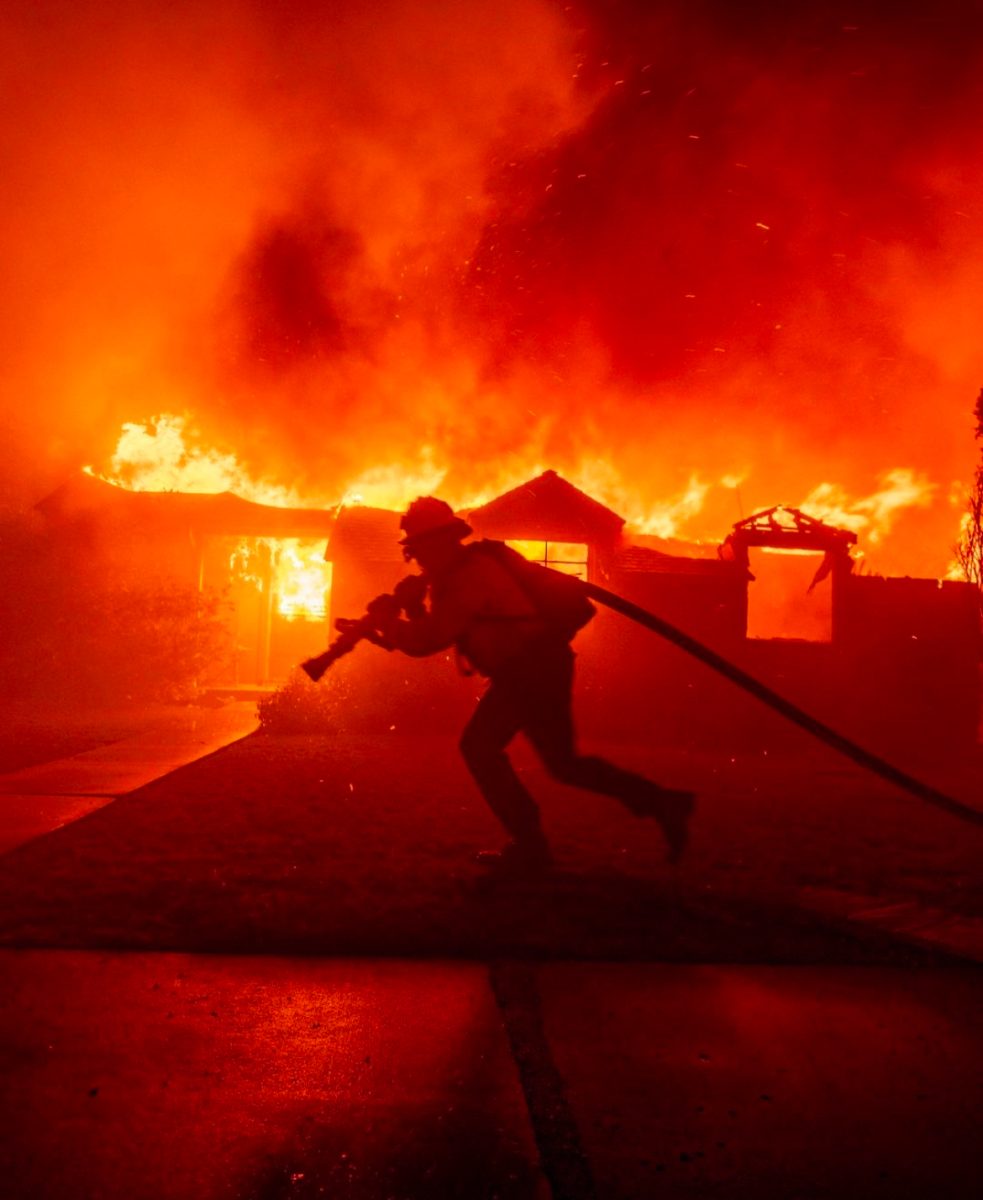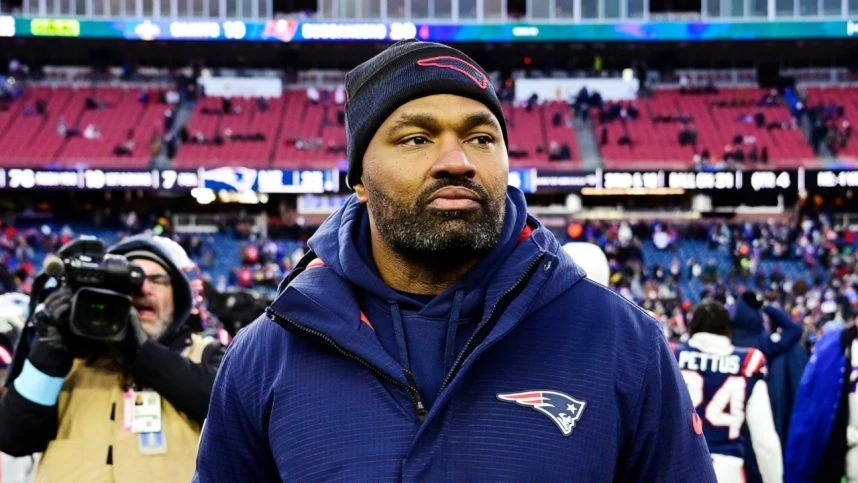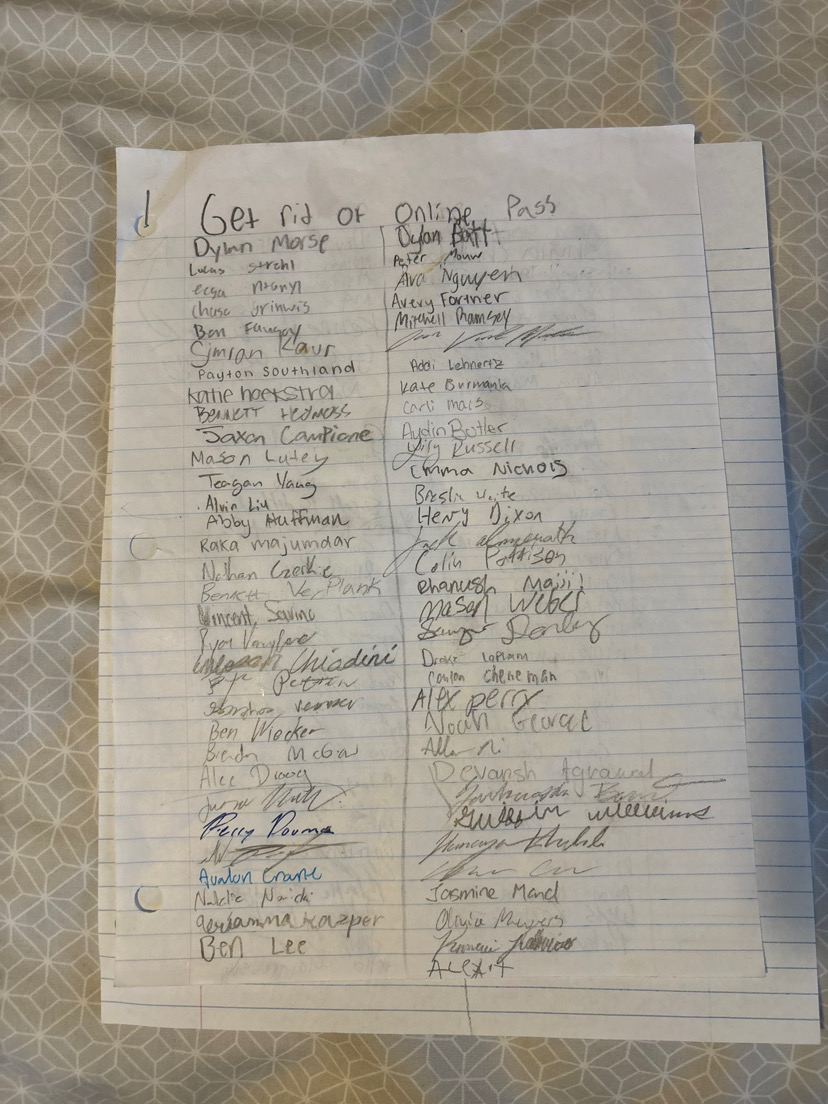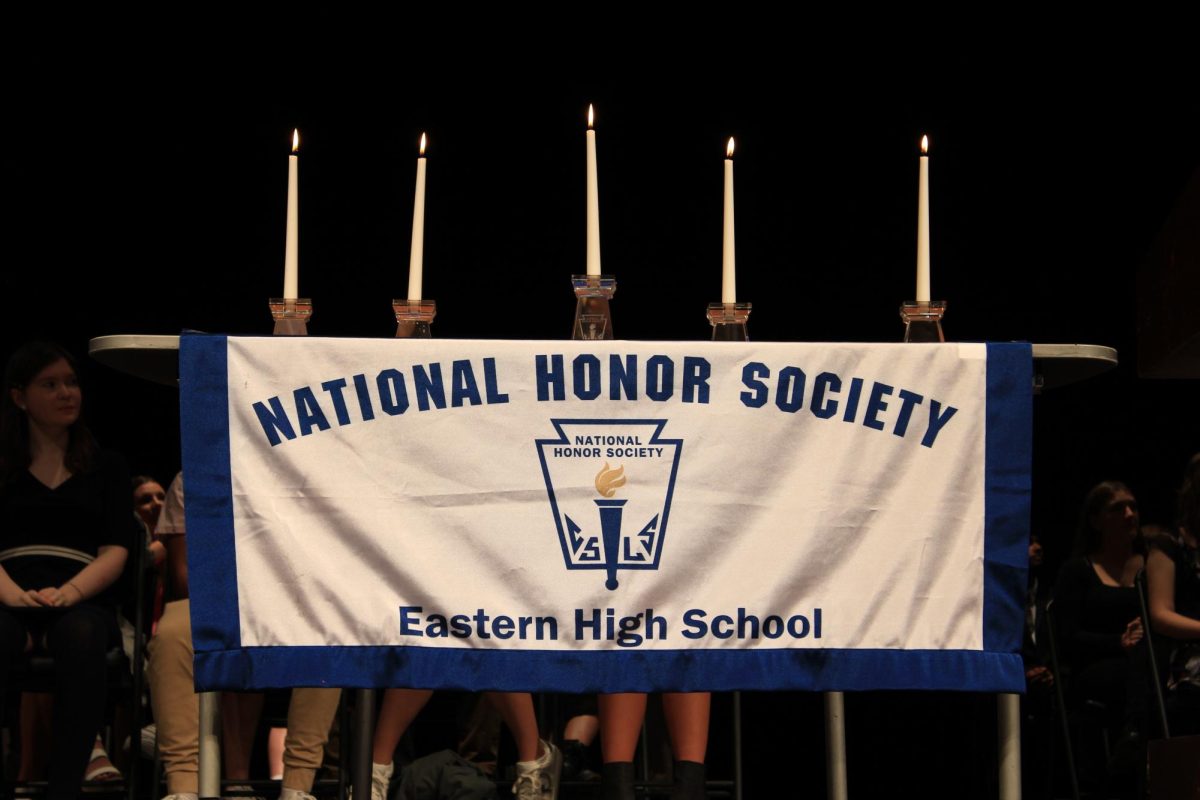When most people think of classic metal music, famous artists such as Motley Crue, Metallica, Ozzy Osbourne, AC/DC, and Def Leppard come to mind. However, many bands fall under the radar; one of which is the band Savatage.
Savatage was founded by the Oliva brothers, Jon and Criss, in the Tampa area in 1979. Throughout the early 80s, the band had a rocky start, but in 1983 they released their first album, Sirens. Following this, they released a few more albums but didn’t have much success. In 1986, Savatage released their third album Fight for the Rock. The band however did not like the album, but due to the idea being of their record label, they were forced to publish it. Rather than showcasing new and original songs in this album, it instead was filled with Savatage covering popular songs of the time; this ultimately led to the media picking apart their already fragile reputation. Despite the failed album, the band toured with many famous metal bands of the time including Motorhead, Kiss, and Metallica.
While these tours certainly helped Savatage’s reputation, things ultimately began to take off for them in 1987. Aside from the setback of them losing their bass player, they were able to replace him with Johnny Lee Midddleton before releasing a new album. Unlike their previous albums, however, this album was produced by Paul O’Neil who would later go on to produce all of their future albums as well. The first album produced by him is arguably their best work: Hall of the Mountain King. This album was a huge success due to the new ideas it brought to metal music.
The album brought more of a symphonic approach to it rather than simple guitar riffs acting as the base for the whole song. The songs of this album brought complexity with them such as shifting tempos, key changes, and a variety of percussion appearances. One notable example of the symphonic approach is in the song “Prelude to Madness.” This song features samples from many iconic songs from the classical era. These include “Mars, The Bringer of War” from the Planets Suite by Gustav Holst, and “In The Hall of the Mountain King” from the Peer Gynt Suite by Edvard Greig. Savatage’s album finished 116 on the US Top 200 Albums for that year.
Two years later, in 1989, Savatage worked once again with Paul O’Neil and released their 5th album Gutter Ballet; this is when Savatage officially made their mark in music history. This album took some of the ideas from the previous, but it had more of a progressive style to it rather than a symphonic approach. Two of the songs from that album would go on to have music videos made for them and be featured on MTV in 1990. Those songs would be “When the Crowds Are Gone” and “Gutter Ballet.” Despite this song not getting a music video, it’s still one that stands out to me when listening to it, and that is “Temptation Revelation.” Despite this song being an instrumental track, it speaks with its heavy guitar melodies and pulsing percussion. The Gutter Ballet album was such a big success, that Savatage went on their own tour for the first time throughout North America and Europe in 1990.
The year after their tour, Paul O’Neil was back in the studio but he had a new idea for Savatage. This idea was to make an album that held a story within it. Paul often refers to these albums as “Rock Opera.” The new album for 1991 was called Streets: A Rock Opera. This album was originally going to be a double album with some of the tracks being the narration for the story. The story within the album is about a rock artist who was going through some tough times. Tough times is a sufficient way to describe the success of the album. It did not sell well and wasn’t made popular until many years later. However, despite this album not being initially successful, it did have a lasting impact on the band even though its members didn’t realize it at the time. Savatage still toured after the album’s release but they weren’t as well received as before.
The next couple of years saw big changes for the band. For starters, in 1992 Jon Oliva left the band to work on other projects of his. Even though he wasn’t with the band full-time, he was still writing music for Savatage. After Jon left, he was replaced by Wicked Witch singer Zachary Stevens. With the presence of Stevens, the band recorded another album. This one was called Edge of Thorns and propelled Savatage onto radio stations across America while they continued to go on tour. Tragically, after October 17, 1993, things were not looking good for the band as Criss Oliva, one of the founders of Savatage, was killed by a drunk driver. Following this accident, the initial thought was to end Savatage, however, Criss’ brother Jon along with Paul O’Neil decided to keep the band together in honor of Criss.
Savatage held a tribute show for Criss Oliva shortly after his death. Not long after the tribute show, Savatage released another new album. This one was made by Jon Oliva and Paul O’Neil with Jon writing everything except the vocals for the songs. The vocals were written by their lead singer Zachary Stevens. The album — Handful of Rain — featured Alex Skolnik on lead guitar as a temporary replacement for Criss. Handful of Rain brought a new idea to Savatage’s music. They included counterpart vocals in one of the songs titled “Chance” as well as “Alone you Breathe” which was written as a tribute to Criss Oliva. Shortly after the album’s release, their original drummer, Steve Wacholz left the band to pursue other projects. Unlike when Jon Oliva left, he didn’t keep some of his works in Savatage music. Wacholz was shortly replaced by Jeff Plate for their upcoming tour. After the tour, Plate remained with Savatage. Plate sticking with Savatage was not the only change that happened to Savatage. The band hired a new lead guitarist, Chris Caffery. However, their record label decided that Savatage should have two lead guitar players, so the band hired Al Pitrelli to add to the lineup.
In 1995, the band released another rock opera called Dead Winter Dead. Savatage continued to tour throughout Europe and Asia, but during this tour, Paul O’Neil started a side project from Savatage called “Trans-Siberian Orchestra.” O’Neil recorded a holiday-themed rock opera in 1996 called Christmas Eve and Other Stories which featured a now-famous Christmas song “Christmas Eve Sarajevo 12/24.” This track was featured on Dead Winter Dead as well. The fact that the song was used in both rock operas did not settle well with Jon Oliva, and it didn’t help matters that the Trans-Siberian Orchestra was doing incredibly well on tour in America and selling records while Savatage was not.
The next year in 1997, Savatage tried to counter the success of Christmas Eve and Other Stories by releasing another rock opera based on a real-life story from the time called The Wake of Magellan. This album is one of my personal favorites from Savatage as it features many songs that the Trans-Siberian Orchestra will play on tour to this day, such as “Welcome” and “The Hourglass.” After the release of The Wake of Magellan, Savatage took a break from recording music under the Savatage name. Due to the success of the Trans-Siberian Orchestra, Savatage and their record label parted ways and Trans-Siberian Orchestra was kept on the label. This was emphasized by the members of Savatage focusing on the Trans-Siberian Orchestra more. In 1998 and 2000, the Trans-Siberian Orchestra nearly put the nail in the coffin for Savatage by releasing two more rock operas — The Christmas Attic and Beethoven’s Last Night.
These two albums had tons of success and it appeared that Savatage was dead; however, in 2001, Savatage attempted to make a comeback, by releasing their album Poets and Madmen. This album was a solid attempt, but it didn’t get the same amount of attention that previous albums had. This album was essentially a solo project by Jon Oliva and shortly after, members of Savatage went their separate ways. Many of them are now touring with Trans-Siberian Orchestra.
Jon Oliva started his own band called “Jon Olivas Pain”. Paul O’Neil continued to work on Trans-Siberian Orchestra by releasing two more albums in the 200os titled The Lost Christmas Eve in 2004 and Night Castle in 2009 respectively. Many pieces from Night Castle were reworked songs by none other than Savatage. While most songs on that album were original pieces, others were reworked. One example is “The Mountain,” which is a reworked version of “Prelude to Madness.” Similarly, “The Lions Roar” from Night Castle odes a nod to the song “Temptation Revelation,” while the song “Mozart and Memories” takes a sample from Savatage’s Dead Winter Dead album track also titled “Mozart and Madness.” In 2012, more Savatage inspirations appeared in Trans-Siberian Orchestras EP titled Dreams of Fireflies. The song that has the Savatage influence is “Time You Should Be Sleeping.” However, since Savatage took the backseat to TSOs success, Savatage almost appeared to not exist.
As the 2010s continued, the Trans-Siberian Orchestra continued to tour throughout the holiday season. During these tours, TSO began playing Savatage songs on their tours which opened the eyes of fans to their music and it even caused some fans to buy Savatage’s songs on iTunes or add them to their library. In a way, this brought Savatage back to life. Since then there have been rumors circulating about Savatage reuniting for a tour. While it has been discussed, life events kept hitting the group making it harder to reunite for a tour. In April 2017, the producer for Savatage and Trans-Siberian Orchestra, Paul O’Neil, passed away due to an overdose. Despite this, the Trans-Siberian Orchestra did their tour like normal but did play a Savatage song in Paul’s memory.
The last few years have mainly been focused on TSOs tours and a discussion about a new Savatage album. It has been reported that the members of the band have been making music and sending it to each other. Savatage’s comeback may indeed be likely because in April 2023, Jon Oliva stated that a new album would be in the works starting in June of that year. It’s supposed to feature many members of the original lineup from the 80s and also some of the members from the 90s. The album was intended to be released this year on what would have been Criss Oliva’s 61st Birthday. However, Jon Oliva has had some medical issues causing the production to come to a halt. The album is going to be called Curtain Call and will be Savatages very last album.
So if Savatage has contributed several hit songs to the music industry, why are they still underrated? Well, their top hits didn’t make the pop charts during their run unfortunately. However, they should still be talked about more often. They started new ideas for metal music such as rock operas, changing the tempo, incorporating unique percussion, and drumming techniques. Additionally, the members of Savatage went on to have successful music careers with different groups, including Chris Caffery, Jeff Plate, Johnny Lee Middleton, Al Pitrelli, and Zachary Stevens. All of whom kept close ties with the producer of Savatage — Paul O’Neil — in the wake of the success of the Trans-Siberian Orchestra. Jon Oliva went on to form his solo career while keeping some ties to Savatage and TSO. Steve Wacholz went on to be the drummer for the Michigan-based band Reverence. Alex Skolnik has made appearances for many popular metal artists such as Ozzy Osbourne and is currently a member of the band Legacy. All in all, Savatage has played a huge role in forming the genre we know as metal just by the presence of its members. The band’s journey tells a story of rock stars, just like how their albums did.




































Michael Nau • Aug 2, 2024 at 6:02 pm
Savatage was unfortunate underrated. I have been a huge fan for many years. I continue to see TSO every holiday. They bring the best of Savatage out in every show